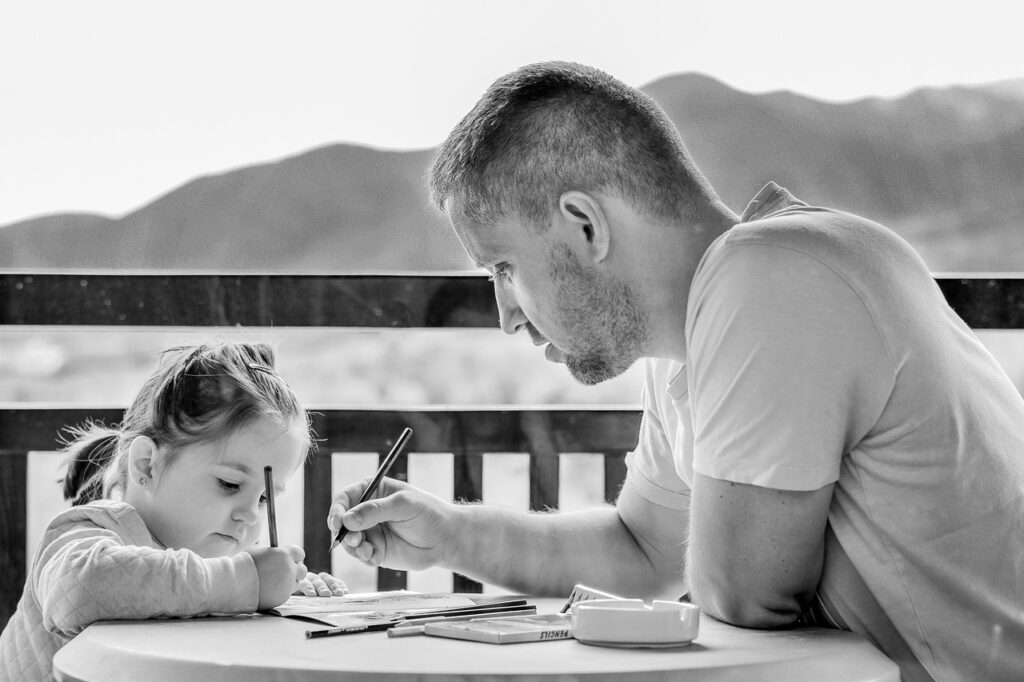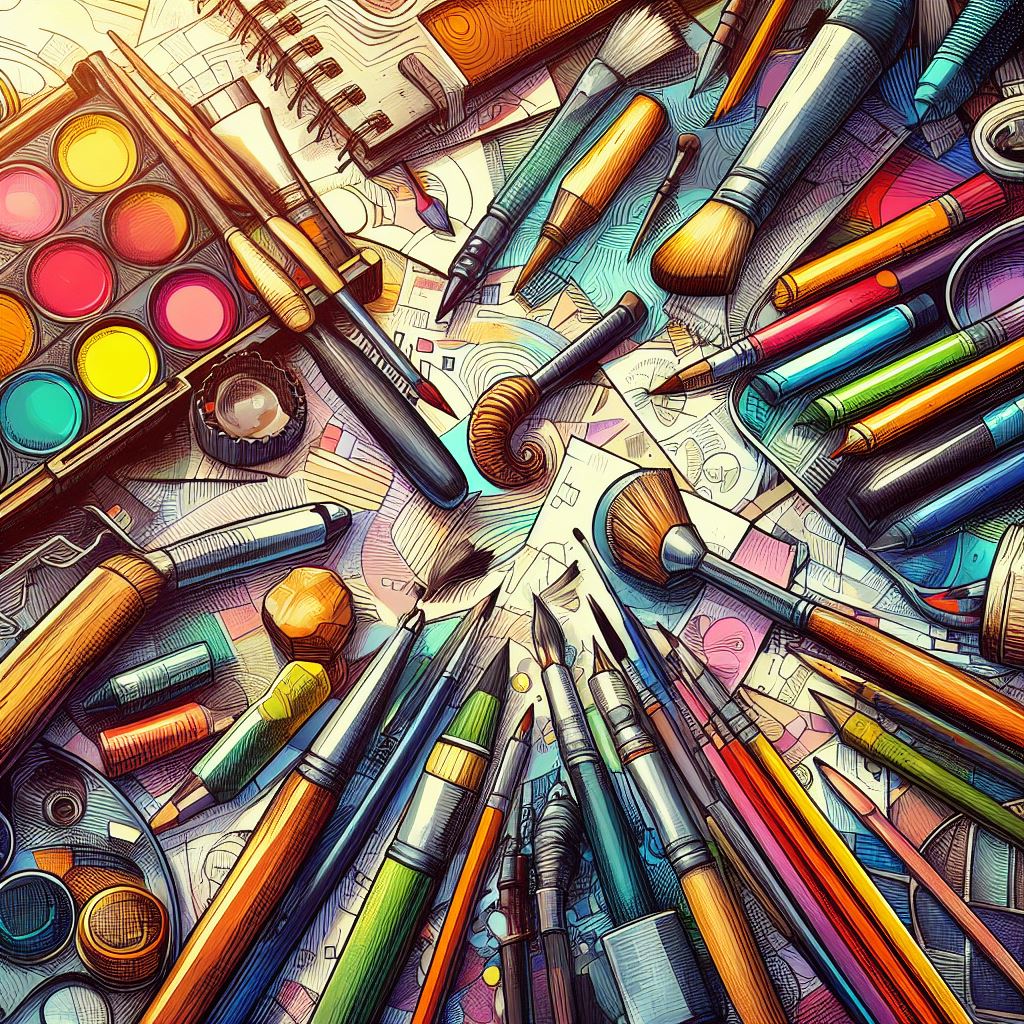Every person has characteristics, and the degree to which these develop usually occurs throughout life. The earliest events and experiences have had a significant influence on the person you are today, but again, do not mean to say everything.

However, there is a fundamental difference between the qualities of an individual, such as creativity, talent, and cognitive abilities, and the characteristics of a person.
The difference is that qualities refer to specific skills, talents, or attributes that an individual possesses, while characteristics are general attributes inherent to all people.
The 11 characteristics of a person
It is important to note that these traits are subjective, and not everyone possesses them to the same extent. Each person has their own unique combination of characteristics that define them.
1. Personality
Your personality is everything that defines you as an individual and sets you apart from others. Although your character is made up of how you think about your environment and people, your appearance also defines part of who you are. Because each person has a different life cycle and a different set of genes, people can look alike but will never be identical.
It is traits such as kindness, sense of humor, and temperament that we can recognize in individuals. Although these are noticeable when we get to know someone, it is the quality of these traits that makes a personality.
A person may have a certain sense of humor, but the interpretation of this is based on how a person takes in the world in their own way and makes this known in the form of jokes or stories
2. Values
From your early experiences and what they taught you, a way of dealing with adversity and how you relate to the world emerges. As you get older, you will begin to see what really matters to you and what you stand for.
This makes some people more likely to form political opinions about certain things, while others find this difficult.
- honesty
- loyalty
- respect for certain people
- responsibility
- perseverance
Every person has values that can usually change their lives as well. This may be because of another person, but for the most part, pleasant or unpleasant experiences will determine your values. As humans, we are quick to draw conclusions about ethical issues such as society and the injustices done to others.
Your actions follow from the things you value and are also the things that influence your feelings. You can get angry if someone thinks differently or if your expectations do not meet what is happening around you.
3. Interests and passions

What inspires and gives you passion refers to the activities, subjects, or areas that someone is interested in and enthusiastic about. It can be anything: sports, art, science, technology, travel, music, or countless other areas. Interests and passions bring color and joy to someone’s life. They inspire learning, creativity, and personal growth and can serve as sources of motivation and fulfillment.
These interests are not the same as aptitude and talent, which do not necessarily align with each other. Someone may be highly skilled in something but have little interest in it or devote little time to it.
4. Talents and Skills
Every person possesses innate talents and skills. These refer to the natural aptitude and acquired abilities that an individual possesses. Talents can be of various kinds:
- Artistic
- Physical
- Intellectual
- Organizational
- Communicative
- Leadership
- Social
Skills are the results of effort, practice, and experience. They can range from technical knowledge and analytical thinking to leadership and communication skills. Talents and skills give a person their unique expertise and ability to contribute to the world.
5. Self-awareness
Self-awareness refers to the ability to understand and evaluate one’s own thoughts, feelings, values, and motivations.
It means being aware of one’s strengths, weaknesses, preferences, values, and beliefs.
Self-awareness enables people to make conscious choices, manage their behaviors and responses, and create congruence between their inner self and external actions. It also aids in self-acceptance and personal growth.
6. Self-reflection
Almost every person is capable of looking at themselves critically. You probably recognize that little voice in your head that sometimes takes over and holds up a mirror to you. For some
Self-reflection goes beyond this critical voice. We learn from ourselves by looking back on events that reveal our strengths and weaknesses.
This process is often unconscious, and we, as human beings, do not always find it easy to scrutinize ourselves. Yet this is necessary to be able to move forward and find out what we really want out of life.
The feeling that you have no talent >>
7. Intuition
Intuition refers to the ability to make decisions based on inner understanding and feeling, alongside rational considerations. It is the “gut” knowledge that arises from experience, wisdom, and deeper consciousness. Intuition can be used as a valuable source of insight and guidance in decision-making, identifying opportunities, and sensing situations.
One of the remarkable aspects of intuition is its ability to process information rapidly and holistically. It can consider a vast amount of data and emotional signals in a fraction of a second, allowing us to make quick judgments and decisions that may not be immediately apparent through rational analysis alone. Intuition can fill in the gaps where logic falls short, providing a broader perspective and considering factors that may not be readily quantifiable or explainable.
6 reasons Your Manifestation Doesn’t Work
How to know your Artistic Identity
How you can manifest new ideas – The right way
8. Motivation And Accomplishing Things
Motivation is the thought process and decision-making required to do (difficult) tasks. Every day we are faced with things that need to be done and that we do not necessarily look forward to. In addition, we like to set goals.
Not every person is busy trying to do a little better each day or week than before. Also, the degree of motivation to achieve a goal depends on what you were taught in childhood and how big your arc of concentration is. What is clear, however, is that goal-setting and discipline training enhance our lives in every way.
It encompasses the need for achievement, autonomy, recognition, growth, and fulfillment.
9. Social Skills
Social skills refer to the ability to communicate effectively, build relationships, collaborate, and resolve conflicts. It includes listening, speaking, empathy, assertiveness, negotiation, and teamwork. Social skills enable people to successfully interact with others, establish connections, show understanding, and promote harmony in relationships. They play a crucial role in both personal and professional interactions.
Feeling lonely as an artist >>
10. Independence
We are originally group beings, in which everyone has their own role. Over the past centuries, we as humans have become more and more individualistic because we have become more and more self-reliant. There is also a desire to be independent while being part of a group.
Being able to take good care of yourself and be responsible for your own choices is something we crave throughout our lives. This provides security and a sense of confidence in ourselves.
This power of independence also requires that you sometimes swim against the current, where you may experience opposition from all sides. Think of parents who disagree with your job choice or who leave your environment because you want to live somewhere else.
Everyone needs a secure environment, and that is easily found in being part of a group. The downside to this, however, is that you have to go with the flow and have less choice to follow your own path.
11. Versatility
When you are aware of your own abilities, you also know whether you are fast or slow at learning new things. The more you enjoy this, the more diverse your skills will be. You often see athletes engaged in multiple sports categories.
This flexibility depends on a person’s desire to be good at something and what skills are an extension of that. After all, a guitarist will be more likely to start playing other instruments than someone who is not musical at all.
Your first 10 years largely determine your personality

From the moment we are born, our lives depend on how our parents/caregivers treat us. What later becomes the norm of “normal” and “out of proportion” is largely determined by what we see and hear in our first 10 years. During these years, the positive and negative traits that we will express throughout our lives begin to form.
All these experiences and memories influence whether you are more introverted or extroverted, highly sensitive or less sensitive, artistically inclined or more technically inclined. Of course, you are never solely one thing or the other.
When it comes to sexuality or certain disorders, it is becoming increasingly clear that there exists a spectrum on which you position yourself. You may be at one extreme end of the spectrum or more towards the middle.
You have more within you than you think.
What is more common than not among people is possessing a talent or characteristic of a person that has not been allowed to fully blossom in their lives. This is because in the past, it was often punished as being wrong, useless, or strange, whether by family or other individuals.
For this reason, there are millions of people living with hidden talents and traits that bring a lot of doubt to that person. Perhaps you have them too.
Final thoughts
The characteristics of a person are fixed and largely shaped during their early years. This gives rise to a personal vision and set of norms that determine your qualities. One person may thrive in a large group, while another may be more introverted.
It shows that as human beings, we all have the same foundation, but because our lives and genes are so diverse, we are still different from each other.



